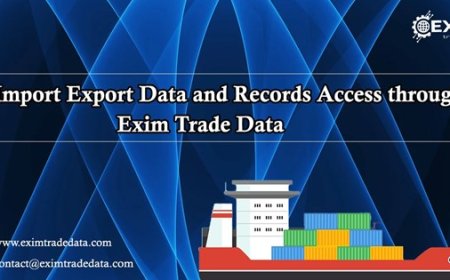Lead Smarter, Not Harder: Acceligize’s Approach to Strategic MQL Filtering
Acceligize delivers comprehensive global B2B demand generation and performance marketing services that help technology companies identify, engage, and qualify their ideal target audiences throughout every phase of the buying journey.
Lead qualification is no longer driven by intuition aloneit requires an intelligent, integrated tech ecosystem that supports automation, data analysis, personalization, and real-time engagement. For organizations focused on optimizing for MQLs: strategic tips to improve lead qualification, building the right MarTech stack is critical.
From lead capture to scoring, nurturing, and sales handoff, your tech stack determines the efficiency and accuracy of your MQL processes. In this article, well explore the essential technologies that enable successful MQL optimization and how to integrate them for end-to-end lead intelligence.
Customer Relationship Management (CRM) as the Source of Truth
At the heart of your MQL infrastructure is the CRM. It houses all lead and customer data, tracks lifecycle stages, and connects marketing with sales.
A powerful CRM enables:
- Centralized lead tracking
- MQL stage tagging and time stamps
- Custom scoring fields
- Reporting dashboards
- Real-time sales notifications
CRMs like Salesforce, HubSpot, or Zoho play a foundational role in optimizing for MQLs: strategic tips to improve lead qualification by keeping the entire organization aligned around data and process.
Marketing Automation Platforms for Lead Nurturing
Marketing automation tools streamline lead capture, nurture sequences, scoring, and handoffs. These platforms help marketers scale communication while personalizing based on behavior and profile.
Key functionalities include:
- Dynamic email workflows
- Behavior-triggered campaigns
- Progressive profiling
- Lead scoring and grading
- A/B testing for optimization
Platforms such as Marketo, Pardot, and ActiveCampaign enable automated, scalable MQL pipelines that convert better and faster.
Intent Data Providers for Smarter Targeting
To go beyond surface-level interest, businesses are investing in intent data platforms. These tools track off-site behaviorlike content consumption, competitive research, and topic interestto reveal which companies are actively in-market.
Top intent data providers include Bombora, G2, and Demandbase. They provide insights such as:
- Company-level buying signals
- Trending topics within target accounts
- Surge data to prioritize outreach
Incorporating this into your stack ensures that optimizing for MQLs: strategic tips to improve lead qualification is fueled by data that reflects real purchase intent.
Conversational Tools for On-Site Engagement
Chatbots and conversational marketing tools help engage leads directly on your website, guiding them toward MQL status through real-time interaction.
Use conversational tools to:
- Qualify leads through pre-set questions
- Route high-intent leads to live reps
- Book demos or consultations instantly
- Collect contact and firmographic details
Tools like Drift and Intercom improve conversion rates while reducing manual intervention, supporting scalable MQL generation.
To know more visit us @ https://acceligize.com/
Lead Enrichment Tools for Better Scoring
Incomplete lead data can slow down qualification or result in inaccurate scores. Lead enrichment platforms pull data from verified sources to fill in missing fields automatically.
Popular tools like Clearbit, ZoomInfo, and Lusha help marketers:
- Enrich job titles, company data, and social profiles
- Verify email addresses and phone numbers
- Segment leads by vertical or buyer persona
Lead enrichment enhances your scoring models accuracy and boosts sales-readiness of your MQLs.
Analytics and BI Platforms for MQL Performance Tracking
Understanding which strategies yield the highest-quality MQLs requires granular performance data. Business intelligence tools help marketing teams visualize trends, conversion rates, and ROI from campaigns and channels.
Use analytics platforms to measure:
- MQL volume and conversion rate by source
- Lead funnel velocity
- Average lead score to opportunity win rates
- Drop-off points in the qualification journey
Google Analytics, Tableau, Power BI, or native CRM dashboards give marketing and sales full visibility into whats working and what needs refinement.
Account-Based Marketing (ABM) Platforms for Precision
ABM tools take MQL optimization to the next level by focusing efforts on high-value accounts instead of individual leads. These platforms support hyper-targeted content, multichannel campaigns, and engagement tracking at the account level.
ABM tech features:
- Account segmentation
- Personalized website experiences
- Intent-based ad targeting
- Unified account engagement scores
Platforms like Terminus, Demandbase, and 6sense integrate seamlessly into your stack to supercharge optimizing for MQLs: strategic tips to improve lead qualification through strategic targeting.
Read More @ https://acceligize.com/featured-blogs/optimizing-for-mqls-strategic-tips-to-improve-lead-qualification/
Integration Hubs to Unify Data Flow
Even the most advanced tools are only effective if they work together. Integration hubs like Zapier, Tray.io, and native APIs help sync your systemsensuring data consistency, faster handoffs, and unified reporting.
These tools enable:
- Automated lead routing between marketing and sales
- Data syncing between CRM, automation, and enrichment platforms
- Real-time MQL alerts and updates
Unified tech stacks prevent data silos and operational delays, which are common roadblocks to MQL effectiveness.
Cybersecurity and Compliance Tools
Handling large volumes of lead data comes with risk. MQL optimization must go hand-in-hand with data security and compliance, especially under regulations like GDPR and CCPA.
Key components include:
- Consent management tools
- Data encryption and secure storage
- Activity logs and audit trails
- Cookie management solutions
These tools protect your data infrastructure and maintain trustan often overlooked but vital piece in optimizing for MQLs: strategic tips to improve lead qualification.
Tech Stack Audits for Continuous Optimization
Your tech stack shouldnt be static. Conducting quarterly audits ensures that tools are being used efficiently and are delivering ROI. Evaluate:
- Feature usage vs. cost
- Overlaps and redundancies
- New tool needs based on strategy shifts
This regular assessment keeps your MQL optimization framework agile and performance-driven.





























